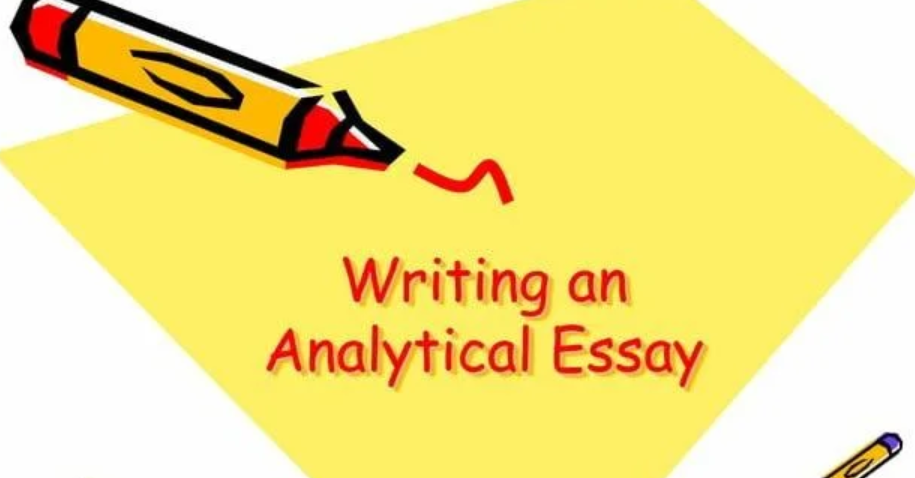Analytical writing is a crucial skill, not just in academic settings but also in everyday life. Whether you’re dissecting a complex argument in a debate or analyzing a marketing strategy for your business, the ability to break down information and present it logically is essential.
This article delves into key tips to help you master the art of analytical writing, specifically focusing on the realm of the analytical essay.
1. Understanding the Purpose of an Analytical Essay
The foundation of strong analytical writing lies in understanding its purpose. Unlike a persuasive essay, which aims to convince the reader of a specific viewpoint, the analytical essay seeks to explore and explain a topic in a thorough and unbiased manner. This involves dissecting the subject matter, identifying its key components, and analyzing their relationships.
2. Choosing the Right Topic and Thesis Statement
Selecting a topic for your analytical essay is a critical first step. Choose a subject that genuinely interests you, as this will make the research and writing process more engaging. Once you’ve chosen your topic, crafting a clear and concise thesis statement is crucial. Your thesis statement should be a single, arguable claim that guides the entire essay. It acts as a roadmap, outlining the specific points you will analyze and the conclusion you aim to reach.
3. Gathering Evidence and Developing Arguments
A compelling analytical essay is built upon strong evidence. Conduct thorough research, utilizing credible sources like academic journals, reputable websites, and primary sources. As you gather information, begin to develop your arguments, which should directly relate back to your thesis statement. Each argument should be supported by specific evidence from your research.
4. Crafting a Logical Structure for Your Analytical Essay
The structure of your analytical essay is as important as its content. Employ a clear and logical organization to guide your reader through your analysis. A common approach is to follow the structure of introduction, body paragraphs, and conclusion.
- Introduction: Begin by introducing your topic and providing necessary background information. This section should end with your thesis statement, clearly stating the main argument of the essay.
- Body Paragraphs: Each body paragraph should focus on a specific argument related to your thesis statement. Start with a topic sentence that introduces the argument, then provide evidence and analysis to support it.
- Conclusion: Summarize the main points of your analysis and reiterate your thesis statement. Consider offering a concluding thought or insight that extends beyond the immediate scope of your essay.
5. Integrating Evidence and Analysis
One of the key aspects of analytical writing is seamlessly integrating evidence and analysis. Don’t simply list facts; explain how these facts support your arguments. Analyze the significance of each piece of evidence and connect it back to the larger context of your thesis.
6. Employing Effective Writing Techniques
Beyond structure, a strong analytical essay requires effective writing techniques.
- Use Clear and Concise Language: Avoid jargon or overly complex language. Aim for clarity and precision in your writing.
- Vary Sentence Structure: Mix short and long sentences to maintain reader interest.
- Use Transitional Words and Phrases: Guide the reader smoothly between ideas with transitions such as “however,” “furthermore,” and “on the other hand.”
- Employ Formal Tone: Maintain a formal and objective tone throughout your essay.
7. Analyzing Different Perspectives
A truly effective analytical essay will consider multiple perspectives on the chosen topic. Present contrasting views or arguments and analyze their strengths and weaknesses. By acknowledging different viewpoints, you demonstrate a deeper understanding of the subject matter and strengthen your own analysis.
8. Avoiding Common Mistakes
- Lack of Clear Thesis: Ensure your thesis statement is concise, arguable, and specific.
- Insufficient Evidence: Support your arguments with strong evidence, using credible sources.
- Weak Analysis: Don’t simply summarize evidence; analyze its significance and implications.
- Ignoring Counterarguments: Address opposing viewpoints to show a comprehensive understanding of the topic.
9. The Power of Revision
After completing your initial draft, don’t rush to submit it. Take time for thorough revision. Read your essay aloud to catch any awkward phrasing or grammatical errors. Ensure your arguments are logically connected and that your evidence effectively supports your claims. Seek feedback from peers or instructors for additional insights.
10. Examples of Analytical Essays
To gain further insights, explore examples of strong analytical essays. Read articles in academic journals, browse online databases, or consult with your instructors. Pay attention to the structure, analysis, and writing style employed in these works.
Final Thoughts
Mastering analytical writing is a valuable skill that translates across disciplines and careers. By following these essential tips and applying them to your own writing, you can craft well-structured, insightful, and engaging analytical essays. Remember, the process of analysis is not just about presenting facts but about exploring their meaning and implications. Through careful research, clear writing, and critical thinking, you can unlock the power of analytical writing and communicate your ideas with depth and clarity.
